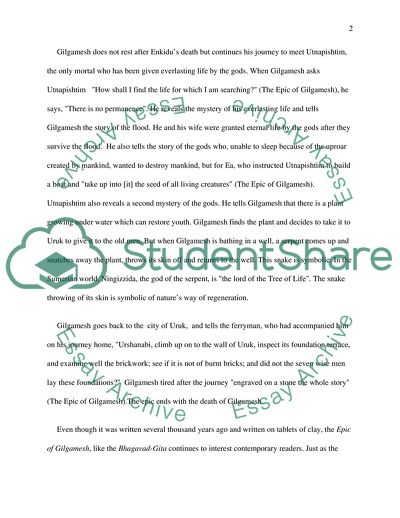Cite this document
(Comparison of The Epic of Gilgamesh and The Bhagavad-Gita Book Report/Review, n.d.)
Comparison of The Epic of Gilgamesh and The Bhagavad-Gita Book Report/Review. Retrieved from https://studentshare.org/literature/1718746-comparing-the-similarities-and-differences-of-the-epic-of-gilgamesh-and-the-bhagavad-gita
Comparison of The Epic of Gilgamesh and The Bhagavad-Gita Book Report/Review. Retrieved from https://studentshare.org/literature/1718746-comparing-the-similarities-and-differences-of-the-epic-of-gilgamesh-and-the-bhagavad-gita
(Comparison of The Epic of Gilgamesh and The Bhagavad-Gita Book Report/Review)
Comparison of The Epic of Gilgamesh and The Bhagavad-Gita Book Report/Review. https://studentshare.org/literature/1718746-comparing-the-similarities-and-differences-of-the-epic-of-gilgamesh-and-the-bhagavad-gita.
Comparison of The Epic of Gilgamesh and The Bhagavad-Gita Book Report/Review. https://studentshare.org/literature/1718746-comparing-the-similarities-and-differences-of-the-epic-of-gilgamesh-and-the-bhagavad-gita.
“Comparison of The Epic of Gilgamesh and The Bhagavad-Gita Book Report/Review”. https://studentshare.org/literature/1718746-comparing-the-similarities-and-differences-of-the-epic-of-gilgamesh-and-the-bhagavad-gita.


